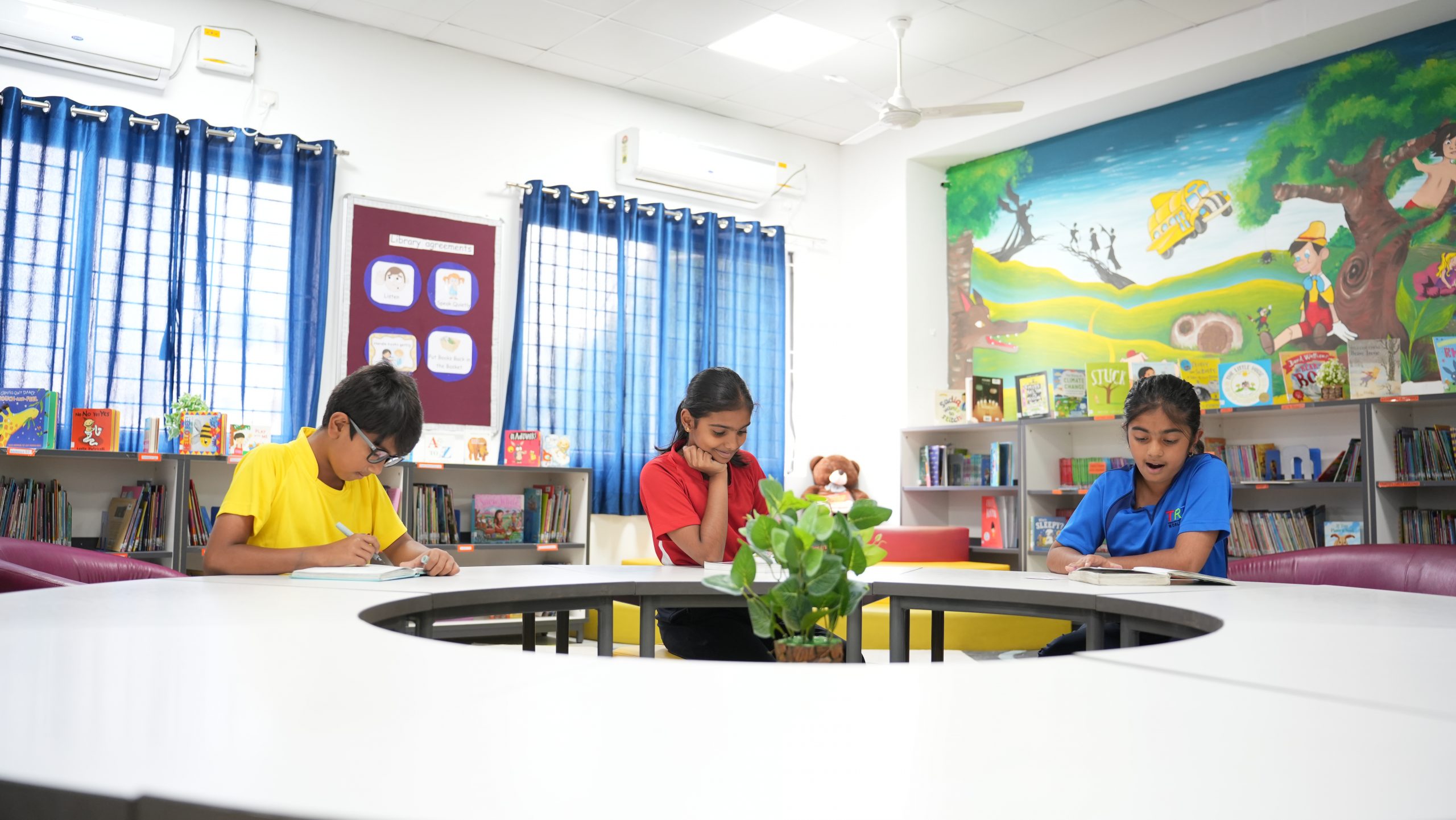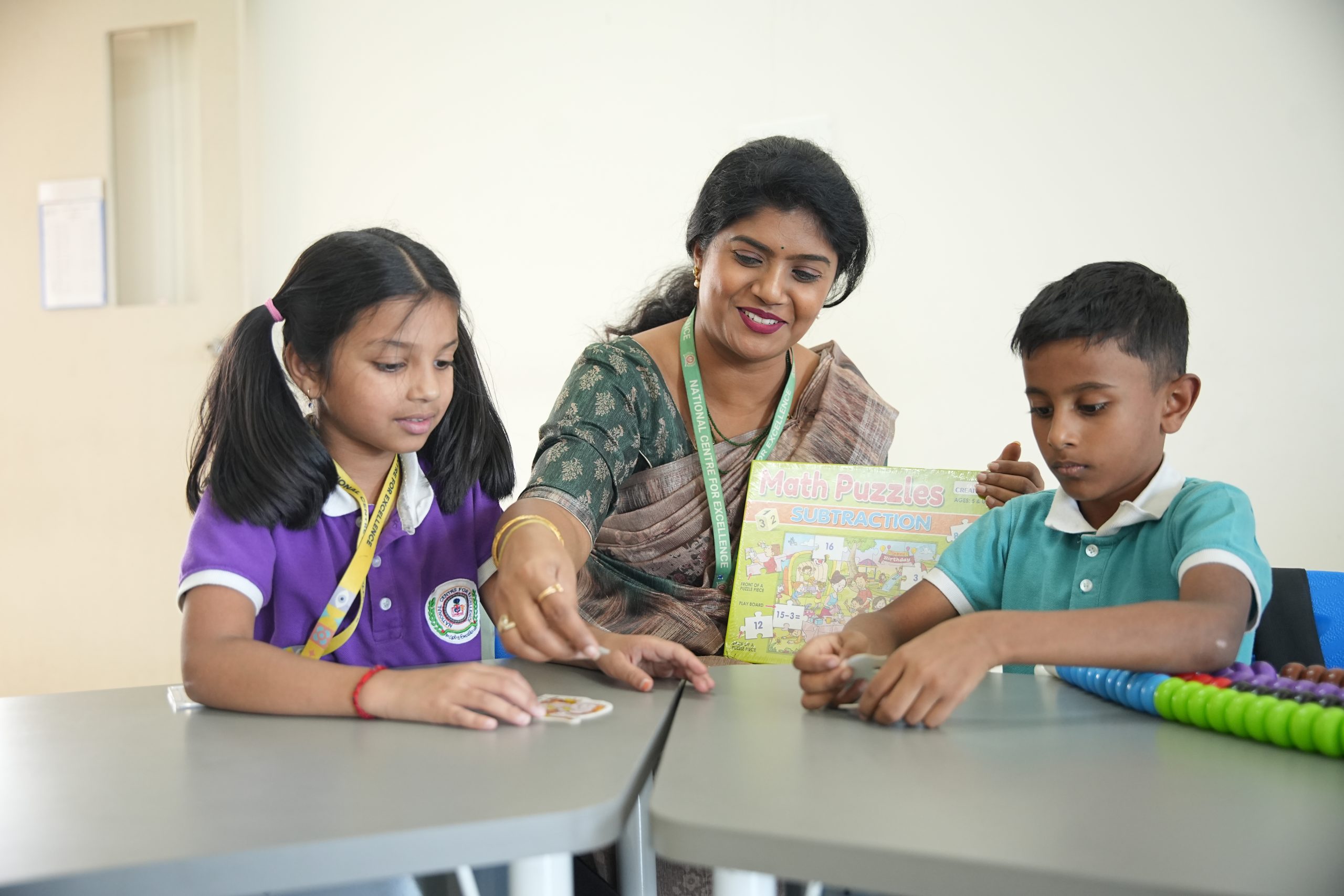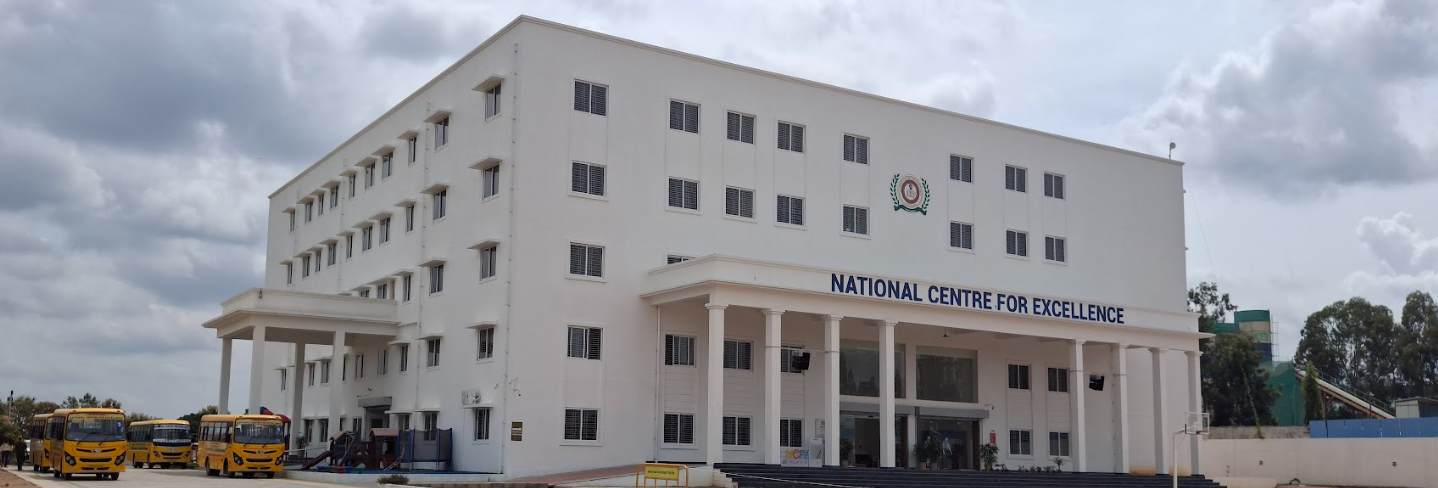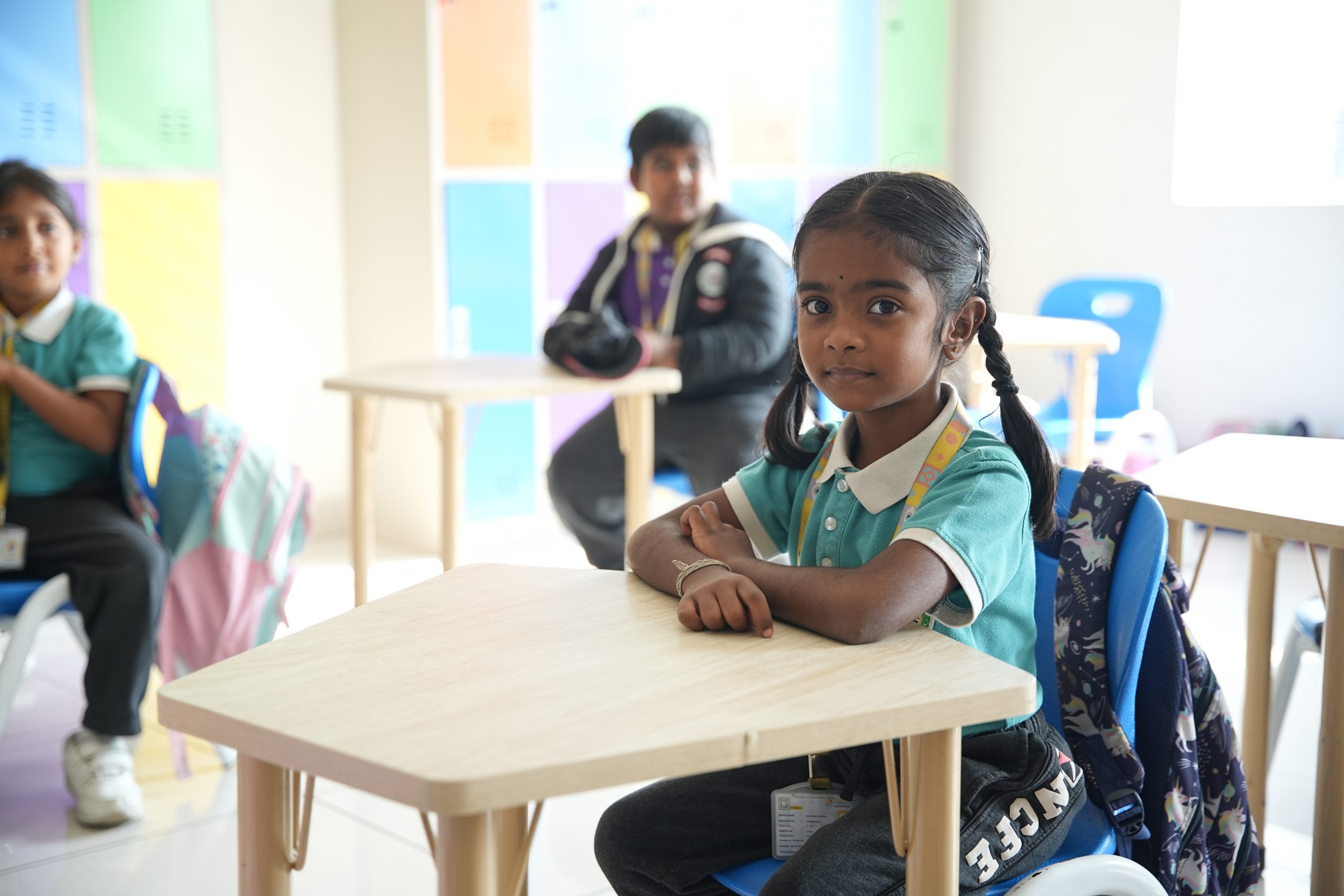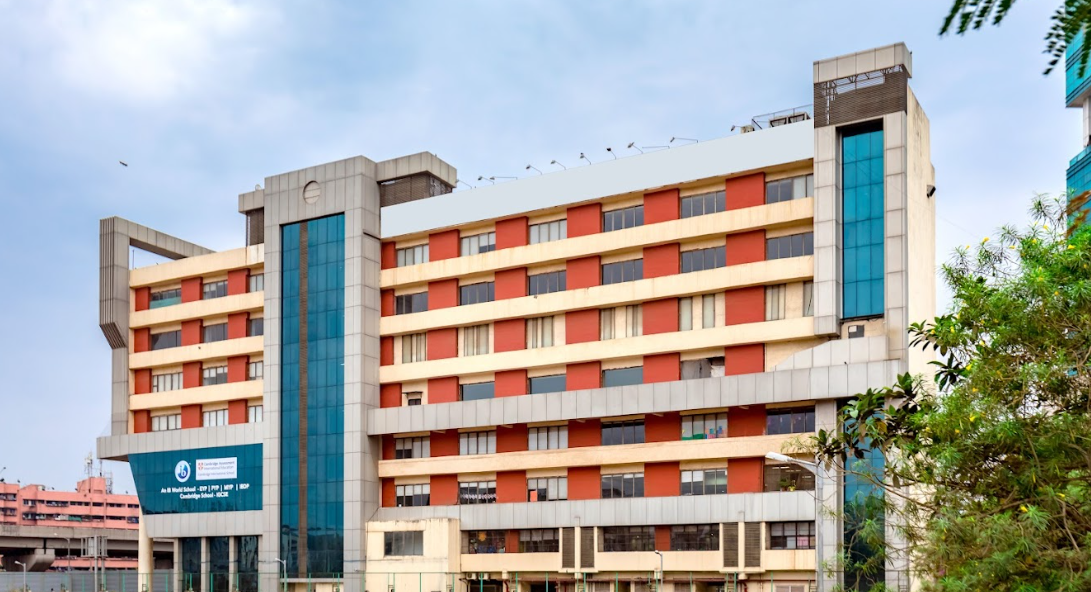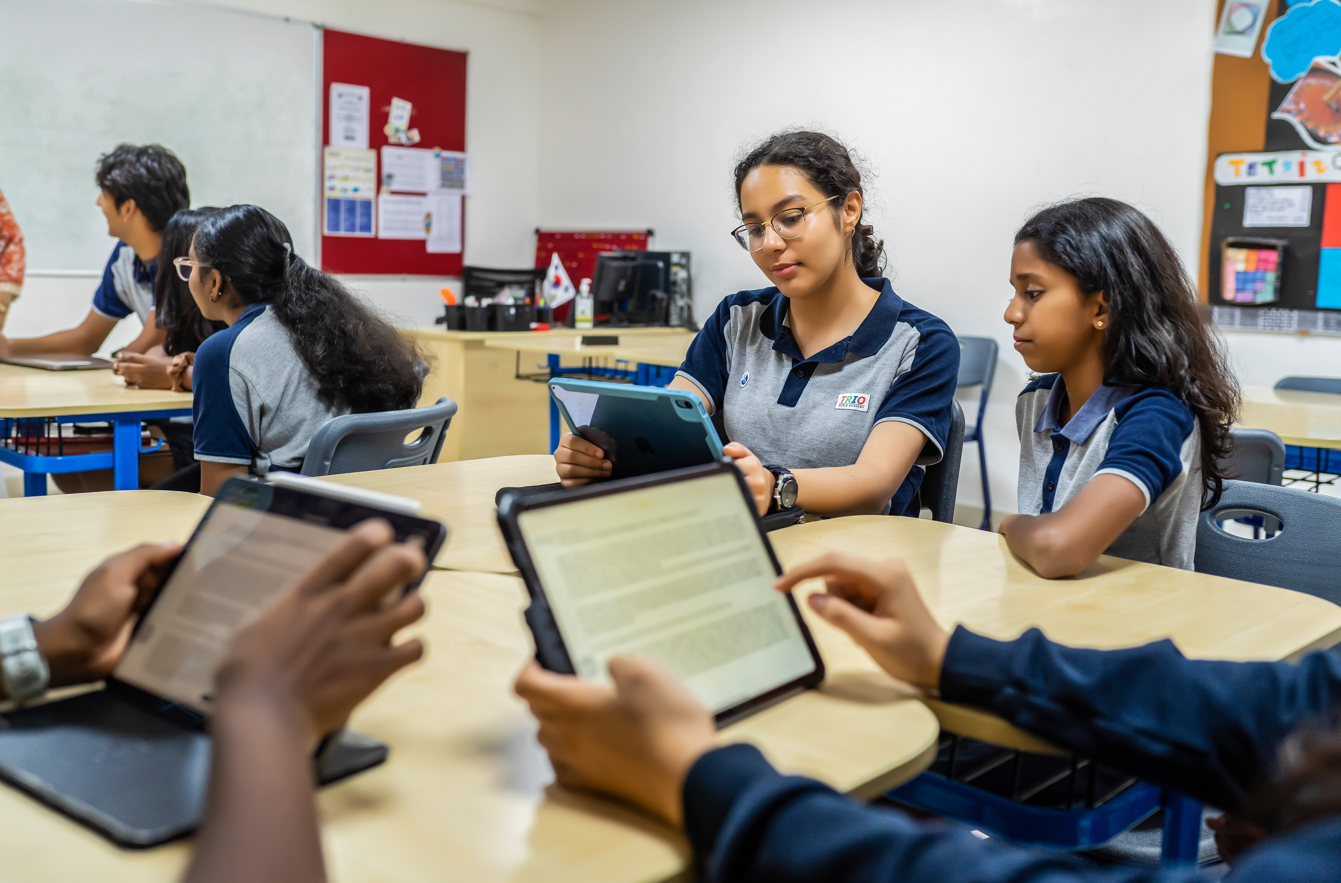Finding the right school for your child can be challenging. Parents often seek schools that balance academic excellence with opportunities for creativity and personal growth. At Yellow Slate, we aim to help parents by providing in-depth insights into schools like Trio World School, Bangalore.
In this blog, we explore how Trio World School has redefined its library space. The school has turned this traditional quiet zone into a dynamic hub for reading, writing, and collaborative learning. Let’s take a closer look at how this approach benefits students and helps foster a deeper love of learning.
About Trio World School, Bangalore
Trio World School in Bangalore is widely recognized for offering an enriching academic experience. The school provides a balanced approach to education, combining a focus on academic rigor with attention to emotional well-being. Known for its student-centered philosophy, Trio World School encourages students to grow intellectually, socially, and emotionally.
The school prides itself on its harmonious relationships between teachers, students, and parents. With its commitment to holistic development, Trio World School ensures that each student receives the support they need to thrive. In addition to offering a wide range of academic programs, the school promotes extracurricular activities, enabling students to explore their passions outside of the classroom.
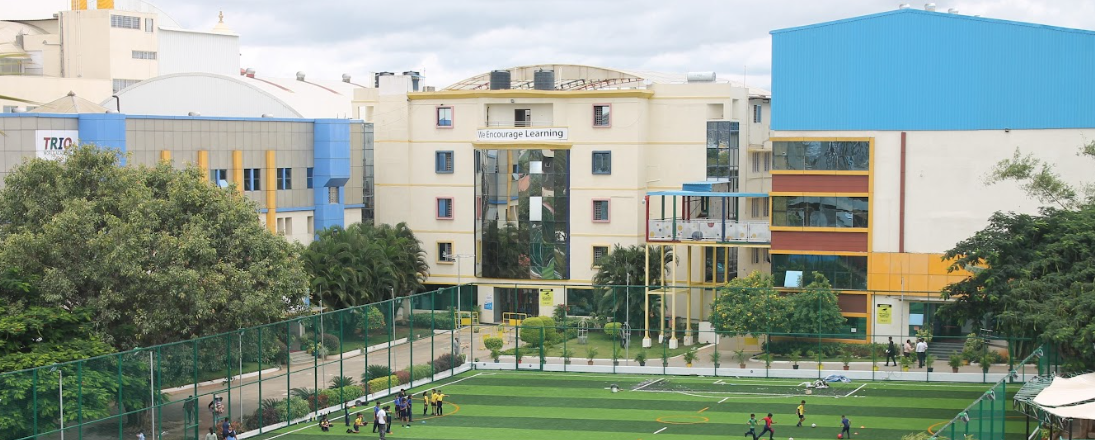
Reimagining the Library at Trio World School
At Trio World School, the library has become much more than a place for reading. It has evolved into a creative space where students can write, reflect, and collaborate. The school fosters a dynamic learning environment where students engage with books in new and exciting ways.
Encouraging Writing and Reflection
Trio’s library encourages students to explore their creativity by writing short stories, poems, and reflections inspired by their readings. This approach helps students develop their writing skills while promoting self-expression. Students are also encouraged to leave written notes or message cards for their peers. These notes can contain vocabulary words, book summaries, or creative thoughts, encouraging meaningful exchanges between students.
Collaborative Learning Through Discussions
The library isn’t just about individual learning; it’s a space for collaborative discovery. Students can engage in peer discussions about the books they read, exchange new vocabulary, and share ideas about the material. This exchange of knowledge builds communication skills and teamwork—crucial skills for their academic journey.
Mindful Thinking and Community Building
The library at Trio also serves as a place for mindful thinking. The environment encourages reflection, where students can explore their own thoughts and ideas through writing. On certain Saturdays, the school hosts voluntary reading cohorts, where students, teachers, and staff gather over tea and coffee to discuss the books they’ve read. This relaxed setting fosters a sense of community among readers and offers a space to share personal reflections.
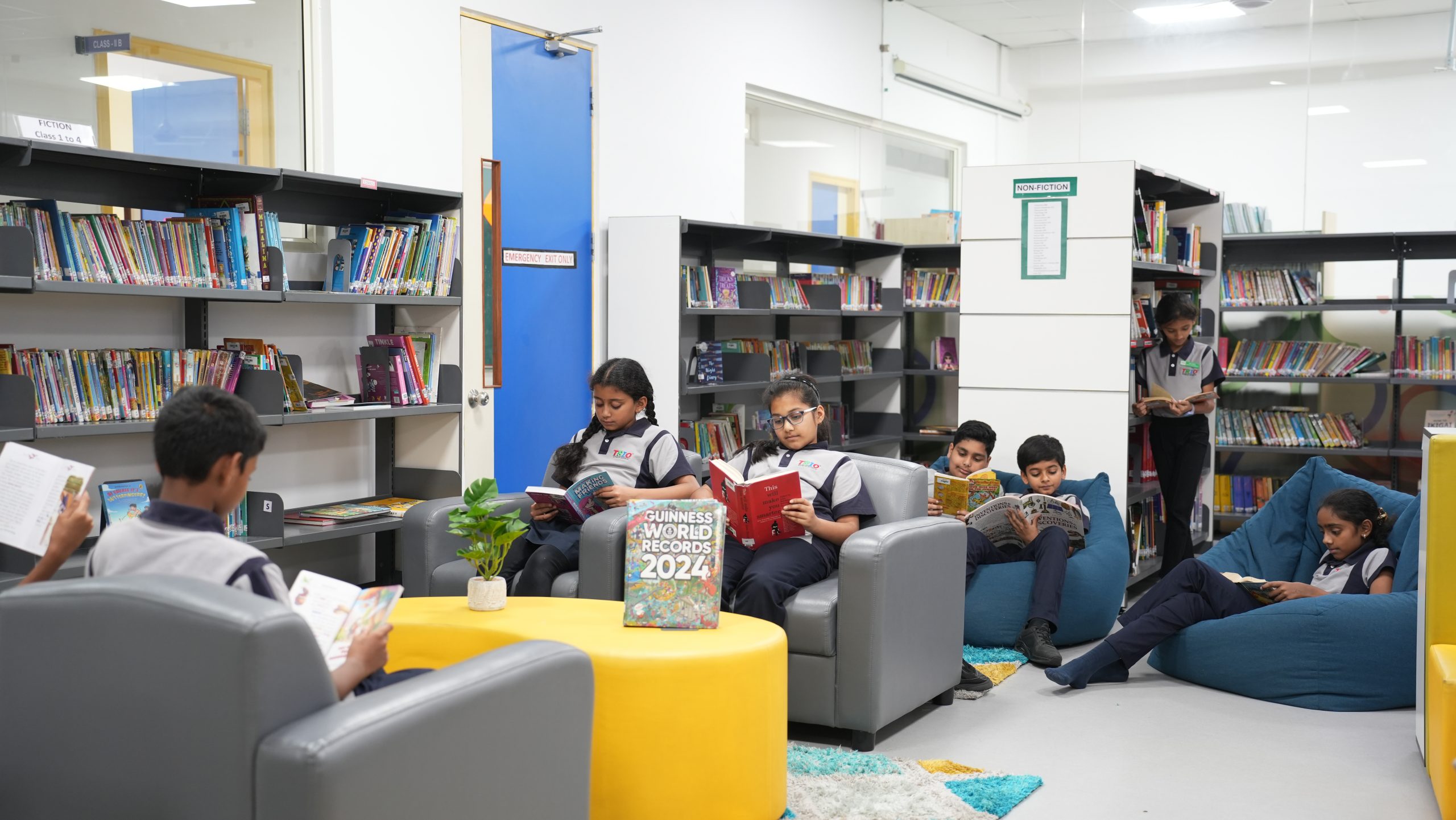
Teacher Engagement and Professional Growth at Trio World Academy
Teachers are encouraged to visit the library regularly to explore new resources and literature related to their subjects. This ongoing professional development helps educators stay current with educational trends and enhances their teaching strategies. It also strengthens the connection between teachers and students by providing fresh materials that enhance classroom learning.
The Role of the Library in Modern Education
In today’s educational landscape, libraries are no longer just storage rooms for books; they are spaces where students engage with information in innovative ways. Trio World School has embraced this shift by transforming its library into a space that promotes active learning, creativity, and collaboration. By offering opportunities for writing, reflection, and peer discussions, the library becomes a critical part of the school’s holistic approach to education.
Conclusion
The library at Trio World School, Bangalore serves as a prime example of how schools can reimagine traditional spaces to foster creativity and collaboration. It’s a place where students develop not only their academic skills but also their imagination, communication, and critical thinking abilities.
For parents looking for a school that values both academic excellence and personal growth, Trio World School provides an ideal environment for students to flourish. The school’s innovative approach ensures that every child has the opportunity to grow into a well-rounded individual.
At Yellow Slate, we are committed to helping parents find the best educational fit for their children. If you’re considering Trio World School, Bangalore, or need more information, we encourage you to explore additional insights to make an informed decision.
